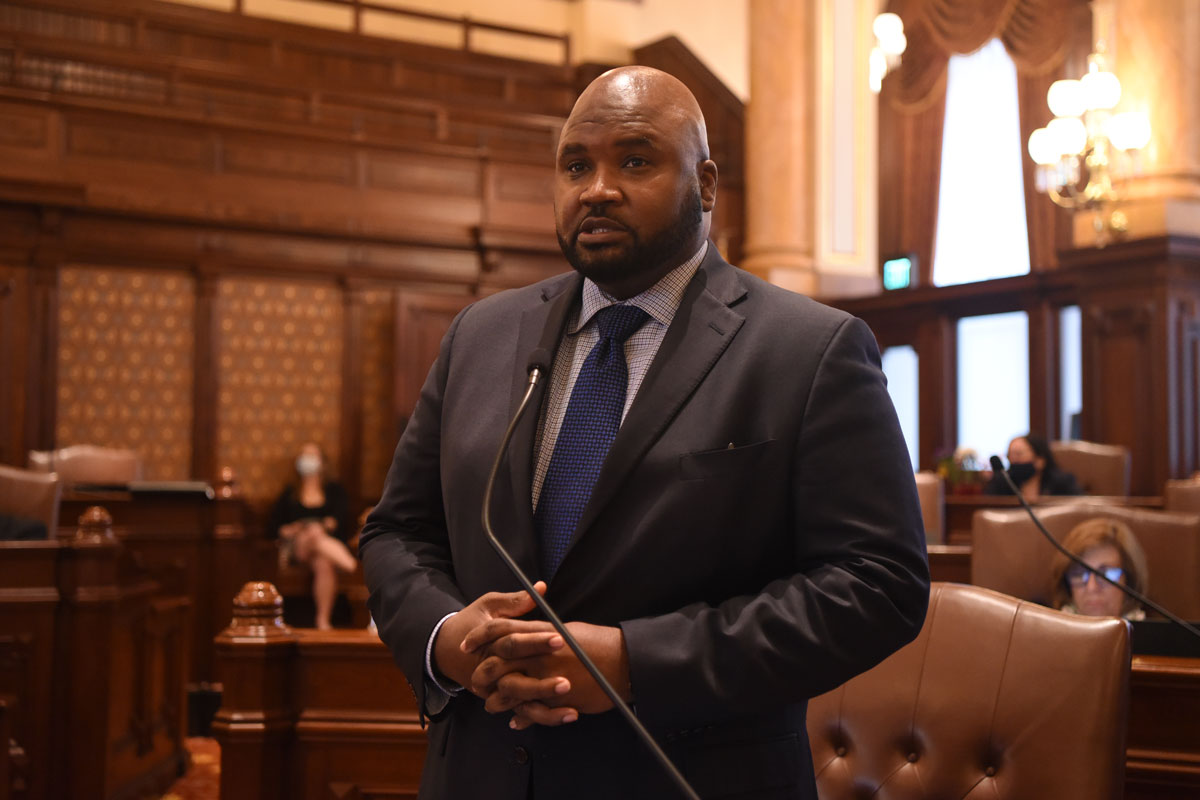 SPRINGFIELD — On Thursday, Governor JB Pritzker signed Senate Bill 2017, the FY22 Budget Implementation Act, as well as Senate Bill 2800, the state’s spending plan, a package of legislation that puts Illinois back on the path toward fiscal stability.
SPRINGFIELD — On Thursday, Governor JB Pritzker signed Senate Bill 2017, the FY22 Budget Implementation Act, as well as Senate Bill 2800, the state’s spending plan, a package of legislation that puts Illinois back on the path toward fiscal stability.
"We have approved a budget plan that I believe is balanced, responsible and puts us on a path toward a brighter future,” said Senate Appropriations Committee Chairman, Elgie R. Sims, Jr. (D-Chicago). “Not only is this budget balanced, it provides stability by making our full required pension payment, paying down the borrowing we needed last year and funding many of our priorities to put our state on the right path."
The Fiscal Year 2022 budget plan reflects $42.3 billion in General Revenue Fund spending. The budget funds additional investments in education and human services while fully funding the Fiscal Year 2022 certified pension contributions and continuing progress on debt repayments.
“By providing more funding to schools and local governments, we are doing more to hold the line on property taxes than any tax cap or exemption ever could,” said Senate President Pro Tempore Bill Cunningham, who helped negotiate the final budget plan. “Our school districts are the primary driver of high property taxes, and this budget invests more than $340 million in Illinois’ public schools, getting us back on track and keeping our commitment to increase state investments in education.”
Some of the highlights for education funding include:
- An increase of $362.1 million for evidence-based school funding - $7.6 billion in total basic school spending
- Continued support for early childhood education at $543.7 million
As for higher education, the budget preserves $1.2 billion for Illinois university operations funding and an increase to the Monetary Award Program (MAP), the state’s primary need-based financial aid program.
"As a member of the Illinois legislative Black Caucus and sponsor of its criminal justice pillar, I am also proud that this budget funds the enhanced training and other associated improvements passed earlier this year to enact the SAFE-T Act,” Said Sims.
The signed budget includes increased funding for the Restore, Reinvest, and Renew program, which issues grants to communities that have been harmed by violence, excessive incarceration and economic disinvestment.
The legislation also provides a $10.3 million increase in to the Law Enforcement Training Standards Board for basic and in-service training requirements, including a focus on crisis intervention training for new and current officers and nearly $5 million in funding for body-warn cameras for Illinois State Police and local governments.
"This budget plan sets Illinois up for success, not just this year, but for years into the future,” Sims said
###













 © 2026 Illinois Senate Democratic Caucus
© 2026 Illinois Senate Democratic Caucus